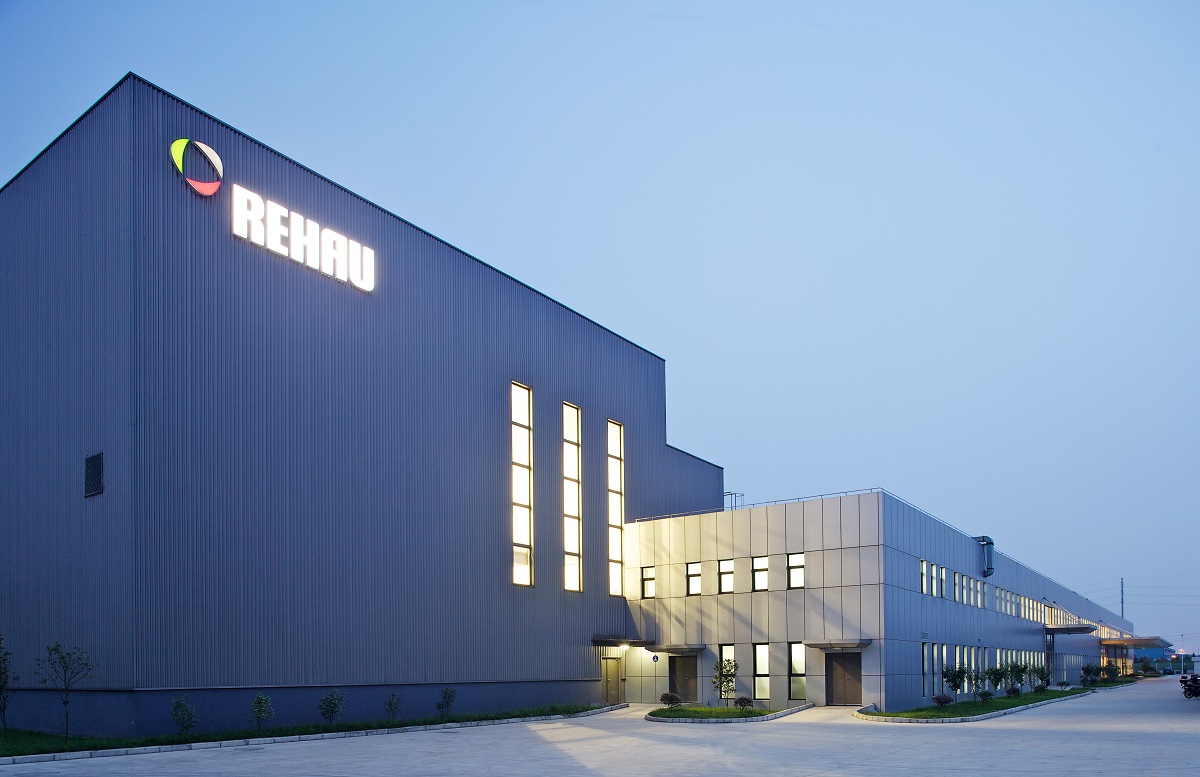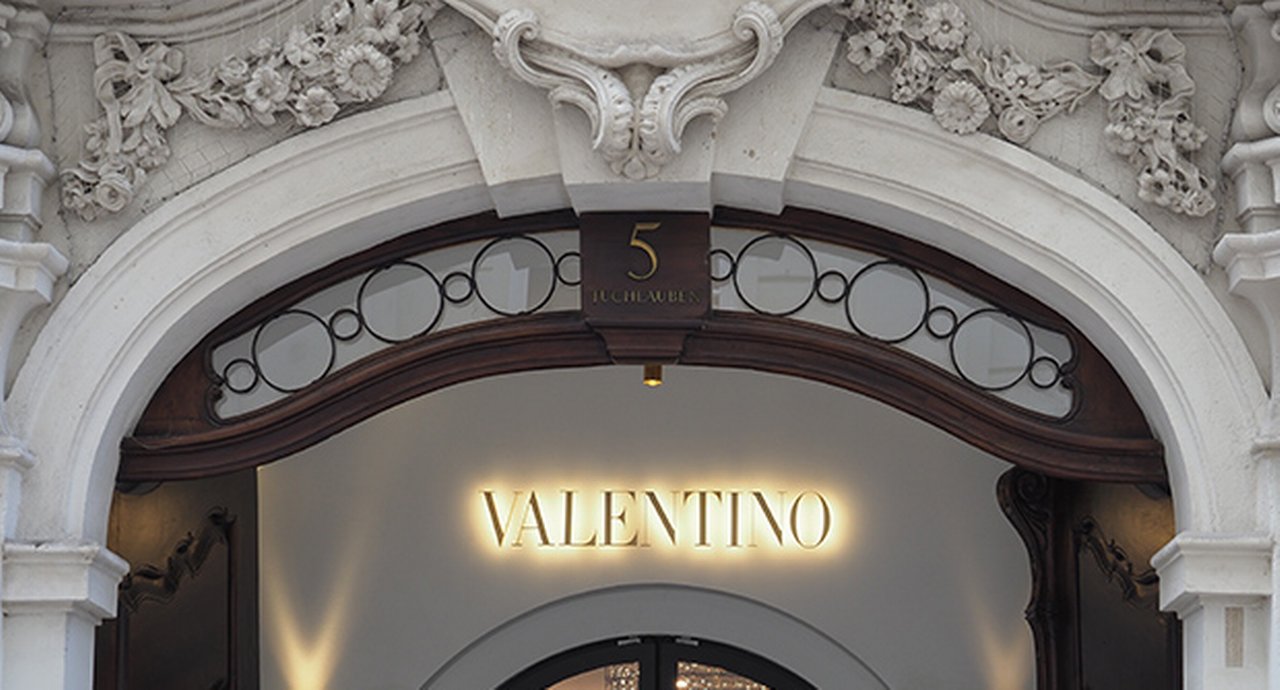7 February 2024
Asia-Pacific remains a top investment destination for European companies. flow’s Desirée Buchholz reports on how the treasury departments of Germany’s HELM and Rehau have big ambitions for the region – and how Deutsche Bank’s Global Hausbank strategy is supporting the growth ambitions of these two ‘Mittelstand’ firms
MINUTES min read
Hamburg-based HELM is one of the world’s largest chemicals marketing companies. The family-owned business, formed at the start of the 20th century, provides chemical feedstocks and derivates, crop protection and fertilisers and pharmaceuticals as well as energy materials such as lithium products in more than 30 countries globally – with Europe as the company’s centrepiece: In 2022, HELM generated half of its €8bn revenues in Europe, while Asia accounted for no more than 13% of global revenues.
When it comes to future growth, however, Asia-Pacific (APAC) is a core investment destination for the company. As HELM expands its portfolio, it is investing €500m globally from 2020 to 2026 – of which a large portion is dedicated towards growth in APAC. “We have a clear strategy to grow our turnover and the share of business in APAC to benefit from the great potential the region offers,” says Frank Clausen, Director Corporate Treasury, HELM AG.
Two deals underpin this strategy:
- First, in May 2022, the company acquired 50% of Malaysian/Singaporean peer SPCI Group. The partnership includes the manufacturing and distribution of chemicals such as sulphur, sulphuric acid, aluminium sulphate, sodium silicate and soda ash. “SPCI will contribute its extensive knowledge in the production of inorganic chemicals, while HELM will provide its supply chain know-how and commercial expertise through its global market presence,” HELM stated in a press release.1
- Second, in April 2023, HELM took over the majority shareholding in agri-tech start-up Plantix which has developed a mobile crop advisory app for disease recognition used by both farmers and gardeners. The joint German-Indian start-up connects small-scale farmers and 60,000 agricultural suppliers in India via one digital ecosystem. Once the farmer has uploaded the picture of the plant, the app will show a diagnosis and treatment suggestions as well as links to the nearest retailer for purchasing those treatments.1

Headquarter of HELM in Hamburg
APAC’s attractions for European companies
HELM is just one of many European companies with aims to expand its operations in Asia-Pacific. The 10 member countries of the Association of South-East Asian Nations, aka ASEAN, are particularly attractive for European firms given the region’s relatively low wage costs, favourable demographics and proximity to industrial clients, as reported in The blossoming of ASEAN. According to an estimate from Deutsche Bank Research the EU’s overseas direct investment in the region rose by about 20% from 2021 to 2022.3
With an aggregate economic size of US$2.3trn and an average GDP growth rate of 6% pa over the past 15 years4, ASEAN members by far outpace growth in developed countries. No G7 country – namely Canada, France, Germany, Italy, Japan, the UK and the US – is expected to see GDP growth above 0.8% in 2024.5
While there are also multiple economic headwinds in Asia, the outlook for this region is significantly fairer, in some cases it is even very bright: India’s economy is predicted to double in size by the end of the decade, making India a US$7trn economic powerhouse by 2030 – driven by a growing middle class, a young working-age population, a thriving information technology sector and political reforms enhancing productivity.
“Supporting our clients in their home market and abroad has been the raison d'être of our business”
China, following its recent slowdown, appears to have passed its post-pandemic trough. Deutsche Bank Research now believes the country’s economy is set for annual growth in the 4.5% to 5% range. While this is lower than in previous decades and ongoing geopolitical tensions with the US are weighing on China, the country remains a critical growth market for many foreign companies. According to the annual survey of its members by the European Union Chamber of Commerce in China (EUCCC), 55% of respondents in June 2023 reported that the country is still a top-three destination for future investments – despite a 13pp drop year-on-year.6
Focus on German Mittelstand
European companies investing in Asia need funding, as well as advisory and product capabilities when it comes to dealing with local regulations around payments, liquidity management, financing and treasury solutions, explains Divya Soni, Head of Relationship & Transaction Management APAC, Deutsche Bank Corporate Bank: “Supporting our clients in their home market and abroad has been the raison d'être of our business ever since Deutsche Bank opened its first international branches in Shanghai and Yokohama in 1872. As part of our Global Hausbank strategy, we continue to support our multinational clients in their growth ambitions in this region, with a particular focus on German Mittelstand clients in APAC.”
There is no universally applicable definition of “German Mittelstand”. In its most narrow understanding the term encompasses small and medium sized enterprises according to turnover and number of employees. In a broader sense, however, it also captures non-listed, often family-owned, companies such as HELM – in short, firms which are deeply rooted in Germany, and specialise in providing specific products or solutions to other global companies. Today, all US Fortune 500 companies can name a Mittelstand company as one of their supplying partners.
“We continue to invest in onshore teams in key international corridors – in particular in India, China, ASEAN and Japan”
“At Deutsche Bank, we partner with our clients to deliver holistic treasury solutions across the full breadth of our footprint that solve the core needs of the treasurer both today and tomorrow. Through this, we earn the privilege of being the Global Hausbank for our clients as they navigate the dynamic and evolving international landscape,” says Ole Matthiessen, Head of Corporate Bank APAC and Global Head of Cash Management, Deutsche Bank.
“As the leading bank in Germany with strong European roots and a global network, supporting our German Mittelstand grow their business in APAC couldn’t be more aligned to the principles upon which we were founded – an engine for international trade and connectivity between Germany and the rest of the world,” he continues. Matthiessen explains, “with this, we continue to invest in onshore teams in key international corridors – particularly in India, China, ASEAN and Japan. This investment into our global network further strengthens our product and structuring capabilities and underpins our commitment to the Asia Pacific growth of our clients.”
HELM: Managing price fluctuations and risks
How does this strategy benefit companies in practice? To answer this question, one has to understand the challenges they face – on a global scale and in APAC in particular. Looking at the example of chemical trader HELM, the company’s business is exposed to price fluctuation for these chemicals. Hence, working capital needs change quickly. “As such, we need a bank that understands our business model and has the flexibility to quickly re-allocate credit lines across different countries according to our working capital requirements,” explains Head of Corporate Treasury, Frank Clausen.
Most recently, for example, HELM India secured a licence to store methanol, which will allow the company to add a new product to its local operations, explains Richard D’souza, Head of Finance; HELM India: “Yet, in order to do so, we need standby letters of credit (SBLCs) and thus limits to be allocated to us.” Due to local payment terms, the company has on average 10 to 20 days of working capital exposure in India which need to be covered by standby letters of credit – and those come from Deutsche Bank in coordination with the central treasury in Hamburg. “Finance is an enabler for the business and Deutsche Bank supports us on fulfilling this promise,” says D’souza.
Added to working capital needs, HELM also has to deal with FX exposure in APAC. “In most cases the buying currency is different from selling currency,” reflects Clausen. The Indian business, for example, pays its international suppliers in US dollars (USD) and sells to its local customers in Indian Rupee (INR) – with the currency risk being hedged by a forward contract “close to the invoice via the Deutsche Bank trading platform Autobahn”, he explains. Given the amount and frequency of FX trades, a fully automated, transparent process is a must for the company.
“For us, the concept of ‘Global Hausbank’ means that we have a partner with Deutsche Bank that has a truly global footprint”
As short-term funding, FX, and payments provider: Deutsche Bank has been HELM’s Global Hausbank for more than 50 years. “For us, the concept of ‘Global Hausbank’ means that we have a partner in Deutsche Bank that has a truly global footprint and supports us with the full range of services in our headquarters in Hamburg as well as in the regions,” Clausen adds. “We have a single point of entry with our global relationship manager, who coordinates issues to be discussed with the local experts.”
“We value the speed and professionality with which our requirements are addressed,” adds D’souza from a local perspective.
Rehau: Making use of an umbrella facility
While HELM has worked with Deutsche Bank for more than 50 years, Rehau Group, a family-owned business based in the Northern Bavarian town of Rehau, chose to partner with Deutsche Bank in 2008 when it opened its branch in Singapore. The company has been active in APAC for more than 50 years, starting 1972 in Thailand.
Rehau manufactures polymer-based solutions for the automotive, construction, furniture, medical and industrial sectors. From its turnover of more than €4bn in 2022, only about 5% originated from Asia. Now Rehau plans to grow substantially the region. The company for example produces plastic seals for refrigerators, polymer components for window frames or underfloor heating. Its medical division comprises tubings, moulded parts, semi-finished products and complex systems which are – amongst others – used for enteral feeding, cardio surgery and pharma fluid handling.

Rehau’s facility in China
According to Antonio Di Leonardo, Rehau’s Head of Group Treasury & Risk, the company has already invested a EUR sum in the double-digit million range in China and now – as the “ramp-up phase in China is completed” – also plans to expand its operations in Thailand, Indonesia and India. “As we continue to onboard new countries, we need to deal with new issues every year,” he says. “This is why we need a reliable bank partner with a well-established presence in Asia that can help us fulfil local requirements to make payments, manage cash efficiently and find the best way to fund local operation. This is what Deutsche Bank delivers.”
In Indonesia, for example, Rehau originally used an intercompany loan to finance its local operations. But this set-up proved inefficient due to the local tax regime’s impact on applicable internal interest rates. Thus, the company decided to include Indonesia into its umbrella credit facility with Deutsche Bank replacing the intercompany loan.
“Deutsche Bank is our trusted partner for achieving centralisation and standardisation in our APAC treasury processes”
In this structure, the German parent company provides a corporate guarantee for liabilities of its subsidiaries covered by the umbrella credit facility. This allows the bank to give a local loan to the local subsidiary. The umbrella facility not only provides the central treasury with full control over the credit allocation, but it also leaves enough flexibility for incorporating local specifications while absorbing part of the country risk – “which is quite important in Asia as well given the current geopolitical tensions,” Di Leonardo adds.
When it comes to cash management and payments, Di Leonardo still sees room for improvement in APAC. He and his team, which consists of two more treasury professionals, have defined central treasury policies that are put in place locally. “For us, the next step will be to roll-out our treasury management system in APAC to automate and standardise payment processes throughout the region,” he says. “This will help to remove local administration thereby lowering costs and enhancing fraud prevention – and Deutsche Bank is our trusted partner for achieving centralisation and standardisation of APAC treasury processes.”
Wrap up: How the treasurers of Rehau and HELM define the concept of “Global Hausbank”
- Global footprint with a full range of services in every region
- Deep knowledge of local requirements impacting funding, FX, cash management and payments
- Single point of entry into the bank
- Speed and flexibility in decision-making
- Supporting standardisation, centralisation and automation of treasury processes
Sources
1 See helmasia.com
2 See helmag.com
3 See Deutsche Bank Research Report Supply-chain diversification: Europe's investment patterns in Asia published on 6 June 2023
4 See Deutsche Bank Research Report A potential game changer for ASEAN countries published on 14 June 2023
5 See Deutsche Bank Research The House View – The Race Against time published on 6 December 2023
6 See europeanchamber.oss-cn-beijing.aliyuncs.com



